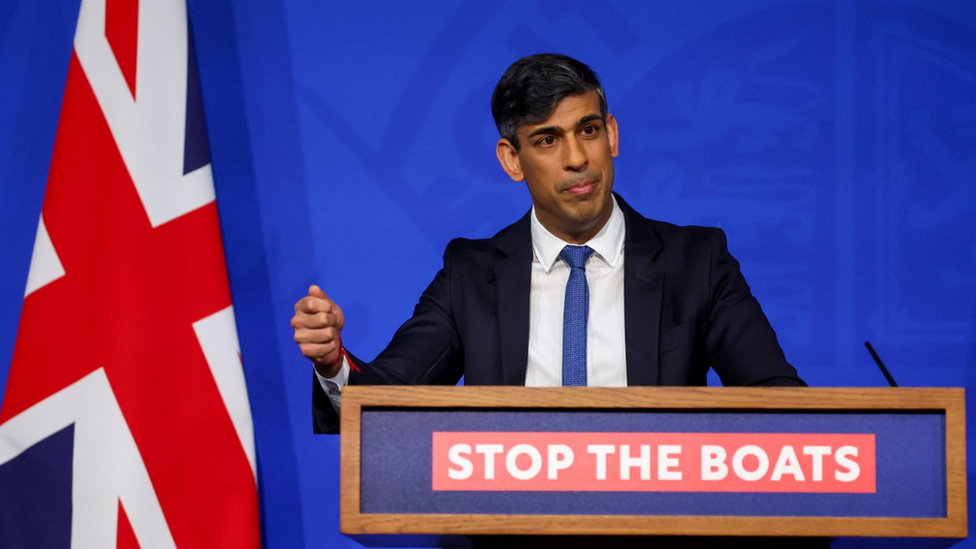Small boat arrivals to be swiftly removed - Suella Braverman
- Published
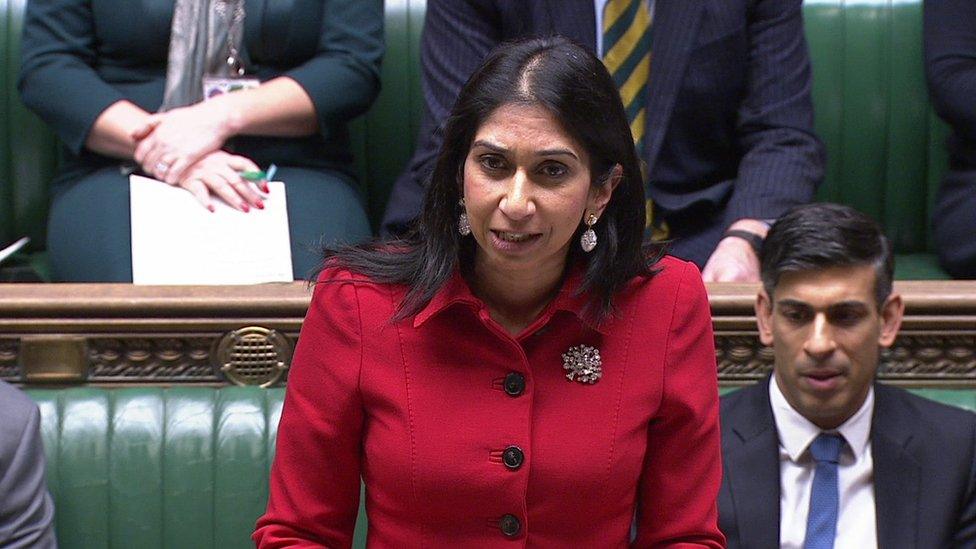
Suella Braverman says the new bill is a response to the "waves of illegal migrants breaching our borders"
Migrants entering the UK illegally on small boats will be detained and "swiftly removed" under new legislation, Suella Braverman has said.
The home secretary told MPs it was time to stop the UK being "taken for a ride" and the need for reform was "urgent".
Under the law, those entering the UK via illegal routes will be removed and blocked from returning. There will also be a cap on the numbers granted asylum.
Labour called the legislation a "con that risks making the chaos worse".
Shadow home secretary Yvette Cooper said serious action was needed to stop "dangerous boat crossings" but described the statement as "groundhog day".
More than 45,000 people entered the UK via Channel crossings last year, up from about 300 in 2018.
The government believes stopping small boats is a key issue for voters and Prime Minister Rishi Sunak has made it one of his top five priorities.
Introducing the Illegal Migration Bill to the House of Commons, external, Ms Braverman said 100 million people around the world could qualify for protection under current UK laws - and "they are coming here".
Ms Braverman said illegal arrivals were "in flagrant breach of our laws and the will of the British people" and if the government did not respond it would "betray the will of the people we have been elected to serve".
"If you enter Britain illegally, you will be detained and swiftly removed. Removed back to your country if it's safe, or back to a safe third country like Rwanda."
She said powers under the Illegal Migration Bill included:
A duty on the home secretary to detain and remove those arriving in the UK illegally, to Rwanda or a "safe" third country - this will take legal precedence over someone's right to claim asylum
Migrants will not be granted bail or be able to seek judicial review for the first 28 days of detention
Under-18s, those medically unfit to fly, or those at risk of serious harm in the country they are being removed to will be able to delay removal
Any other asylum claims will be heard remotely after removal
There will be a cap on the number of refugees the UK will settle through "safe and legal routes" - set annually by Parliament
People removed from the UK will be blocked from returning, or seeking British citizenship in future
The law will apply retrospectively, with anyone arriving illegally from Tuesday at risk of deportation
Ms Braverman said the legislation would radically narrow the number of challenges currently being seen, by taking away the right of illegal entrants to use modern slavery laws to prevent their removal.
She has previously said she believes laws on human trafficking have been abused by people seeking to stay in the UK, although this has been disputed.
Many of the people arriving on small boats came "from safe countries like Albania", she said, and "the vast majority" were adult males under the age of 40, "rich enough to pay criminal gangs thousands of pounds for passage".
The asylum system costs the British tax payer £3bn a year, she said, with £6m being spent each day to accommodate people in hotels.
She also noted the UK had given sanctuary to people seeking refuge from countries including Afghanistan and Ukraine.
Speaking to MPs, the home secretary said she could not "make a definitive statement of compatibility" about her legislation under the Human Rights Act.
She added the UK's approach was "robust and novel", and she was "confident" the bill complied with international law - specifically the UN Refugee Convention and European Convention on Human Rights (ECHR).
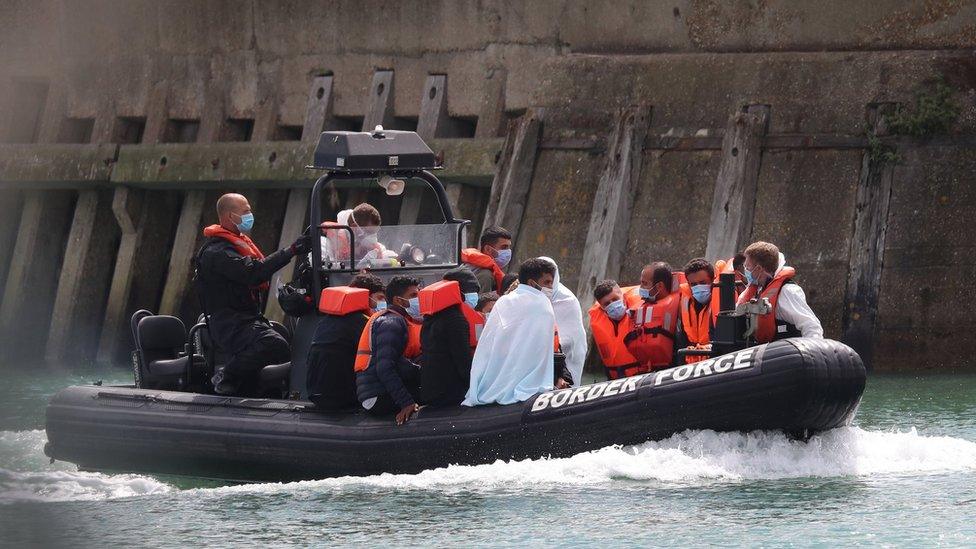
More than 45,000 people entered the UK via Channel crossings last year, up from about 300 in 2018
But the new legislation raises many questions about whether it is legally water-tight.
In a letter to MPs, seen by the BBC, the home secretary said there was "more than a 50% chance" that the legislation was incompatible with the ECHR.
The UK has an obligation to consider asylum claims, but how does it do that if it is denying people the right to make that claim?
Secondly, there are strict rules around detaining people if they are not going to be imminently removed from the UK.
Given the UK has few returns agreements in place with safe third countries, it is not clear where all these people will be housed and whether that amounts to unlawful imprisonment.
Ms Braverman told MPs the legislation would not come with a formal confirmation that it complied with human rights law, but she did not explain why.
The fact that Ms Braverman cannot provide it means that her own lawyers behind the scenes are telling her it could get pulled to pieces in the courts - and she is under a duty to alert MPs to that possibility.
Ahead of the announcement, the prime minister's official spokesman said more safe and legal routes would be created once the small boat crossings had been stopped.
Asked if it would not make more sense to increase the routes first, the spokesman said: "Certainly we don't think it is right to introduce those routes at a time when you don't have clarity on the numbers coming into the country."
The debate - held before the bill had been published - was divisive with opposition MPs standing up to criticise it, while Conservative MPs praised Ms Braverman's approach.
Ms Cooper accused the home secretary of letting people smugglers "off the hook" and said the plans risked "making the chaos worse".
Green MP Caroline Lucas described it as "morally repugnant" to ban people from claiming asylum unless they used a legal route when they "barely exist" or "don't function".
Others suggested the legislation was not workable.
But Conservative MPs backed Ms Braverman, who used the prepared retort that Labour leader Sir Keir Starmer "doesn't want to stop the boats".
Former Tory leader Iain Duncan Smith welcomed the legislation, although he said he did not hear about how it could save the lives of those dying in the Channel.
The danger of crossing was highlighted in December last year when four people drowned after the boat they were travelling got into difficulties, while 27 people died in the single worst loss of life in the Channel in November 2021.
Additional reporting by Damian Grammaticas.
You can listen to BBC's Home and Legal correspondent Dominic Casciani discuss the government's small boats plan on the 5 Questions On podcast here.
- Published13 December 2023
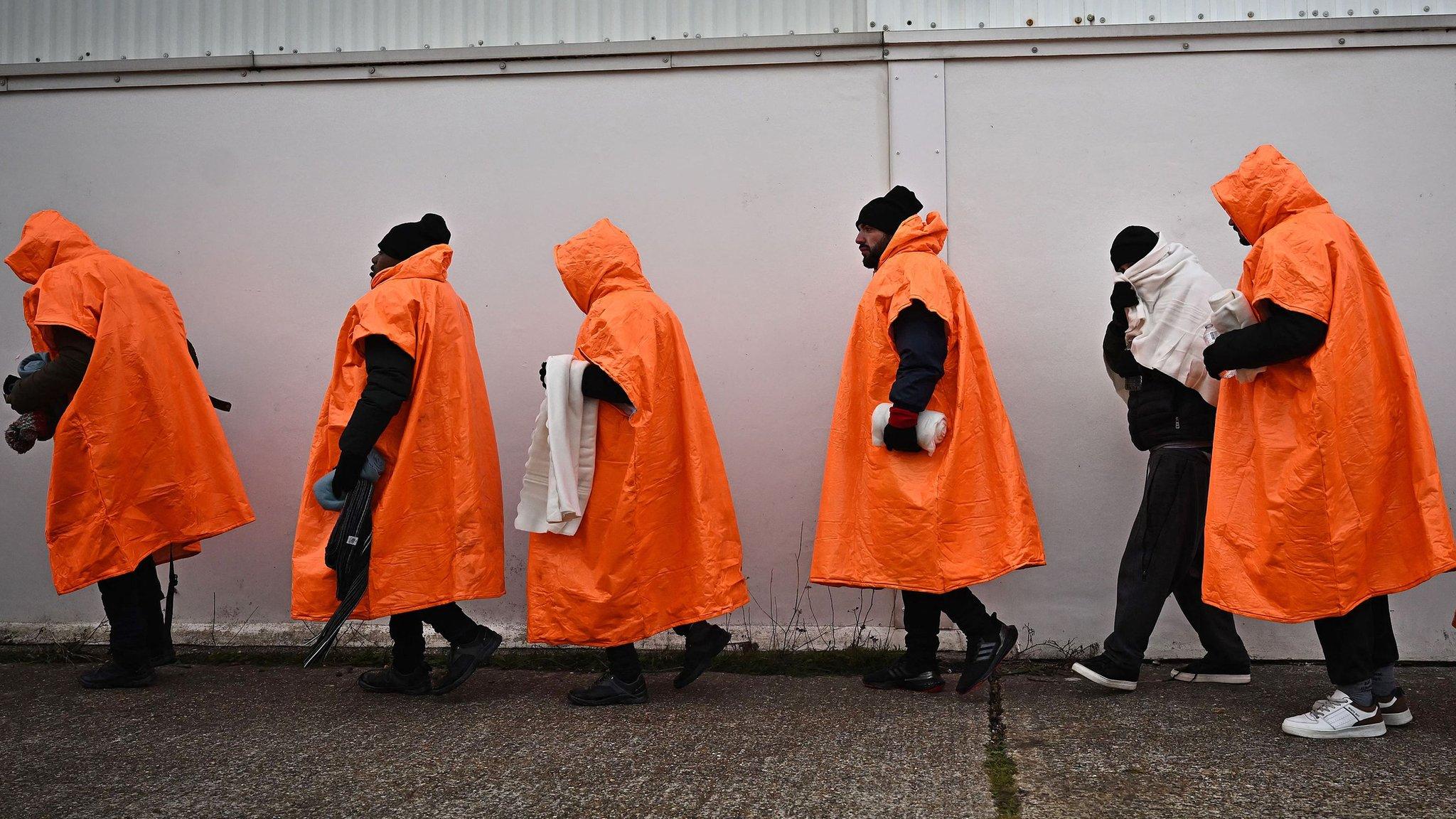
- Published7 March 2023
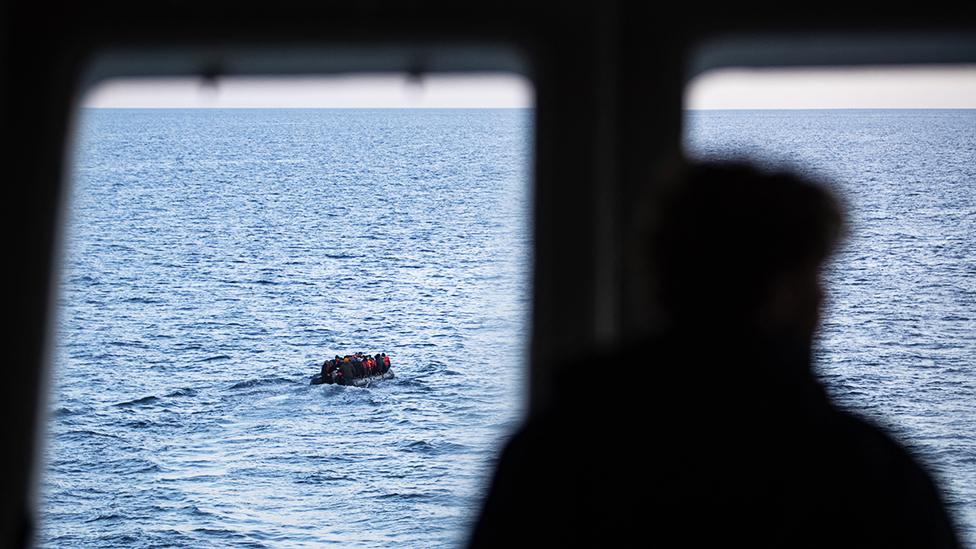
- Published7 March 2023
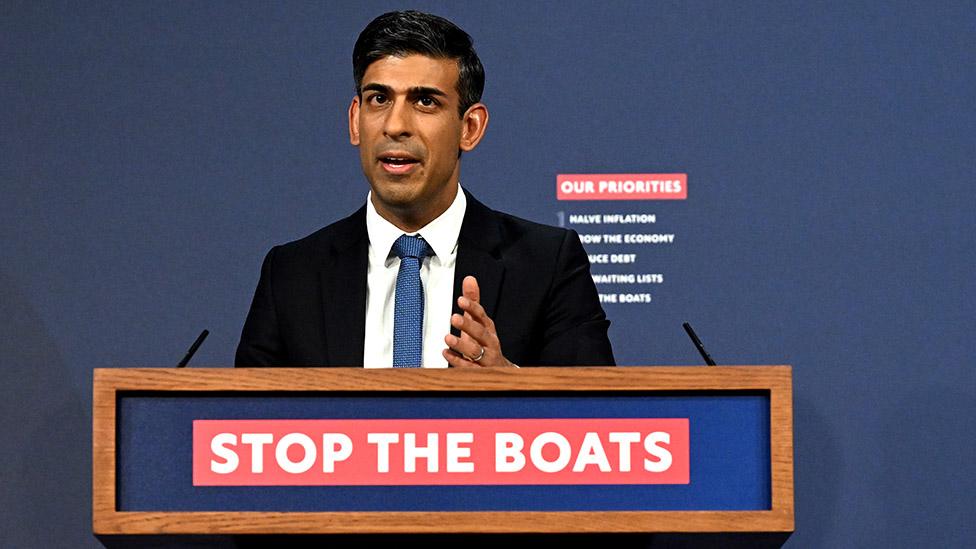
- Published13 June 2024
